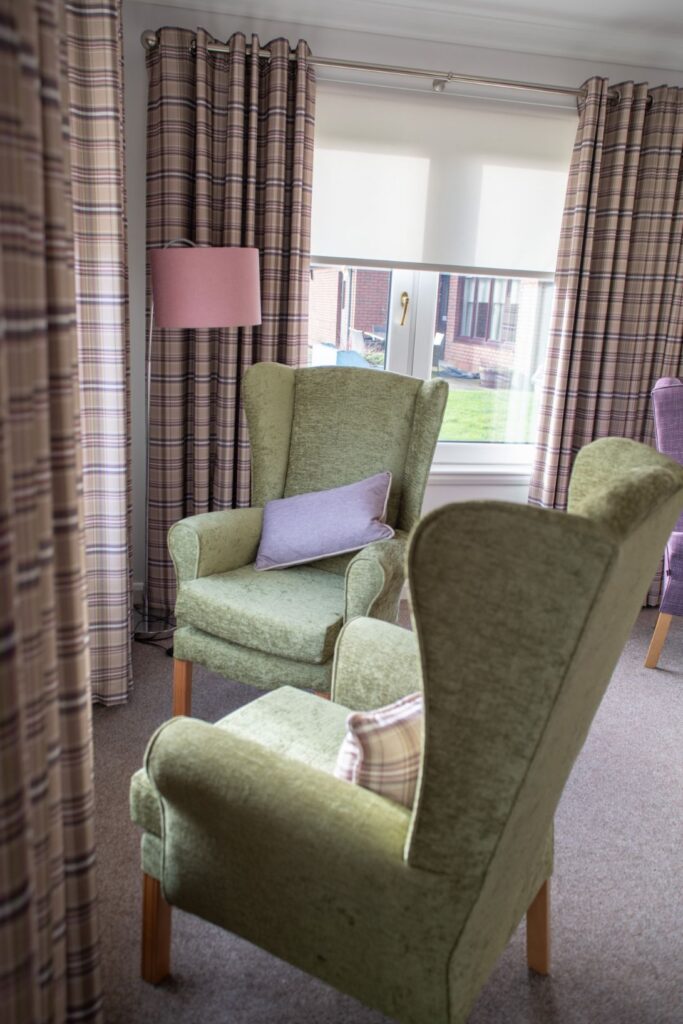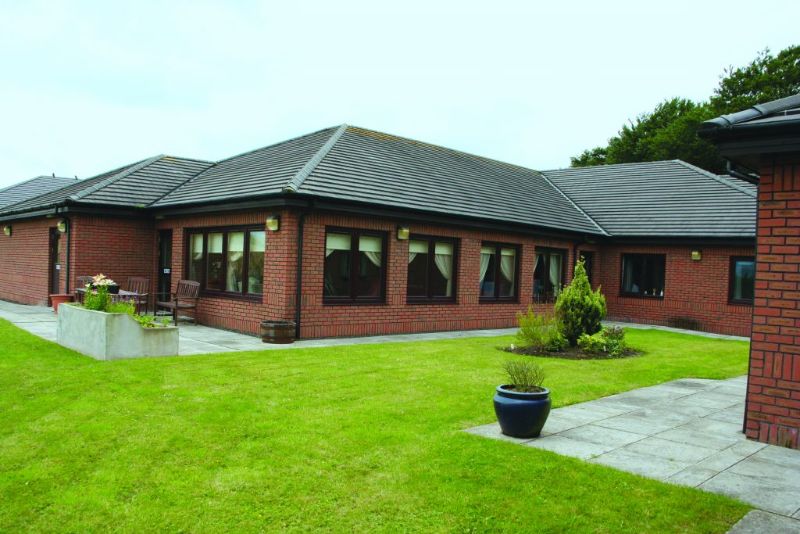How Much Do Care Homes Cost?

Across the United Kingdom, there has been a notable increase in the demand for care homes in recent years, primarily due to the rise in life expectancy and conditions such as Dementia. However, this demand has also led to an escalation in care fees with many families and individuals having concerns about whether they can afford the care home expenses.
To alleviate these worries and provide up-to-date information, we will delve into the average weekly costs of care homes, what is typically included in the care home costs and explore the potential funding options for those who qualify.
The Typical Weekly Expenses of Care Homes and Nursing Homes
The average weekly fees for care homes in the UK are contingent on the type of facility you choose, whether it's a residential care home, a nursing home or an all-inclusive care home. According to research from carehome.co.uk, the average weekly cost of residential care, which offers the most basic level of care, is generally less when compared to nursing homes - due to advanced care being provided to those with significant health needs, a long-term health condition or life-threatening illness. Specialised care options like dementia care typically come at a premium also compared to residential care.
Numerous factors influence the overall cost of care, including the geographical location, the specific type of care provided and any additional amenities offered by the facility. Care homes located in popular cities like Edinburgh, for instance, tend to be more expensive than those in rural areas such as Lanark. You should carefully assess these factors before deciding on a care home, ensuring that it aligns with the needs and preferences of yourself or your family member.
Costs of Care Homes and Nursing Homes
Each care home and nursing home will have a unique fee structure, determined by the amenities and services provided to residents. Some care homes charge a weekly fee, while others may opt for a pay-as-you-go system.
In many care homes, the basic care services are covered in the standard fee, but you may encounter additional charges for the use of certain facilities, participating in activities or accessing external medical services. You should discuss this with the care home manager to gain a clear understanding of how they structure their fees.
Costs of Residential Care
Residential care is the most basic level of care and is often a suitable option for older people seeking a communal living arrangement. This type of care is best suited for those who can mostly maintain their independence but require assistance with tasks such as dressing, bathing and mobility.
Residential care is usually offered at a fixed rate, so it's important to be aware that any additional services you may wish to access may come with extra charges. It's advisable to clarify the fee structure with the care home before your move-in so you know exactly what to expect.
Nursing Care Costs
Nursing home expenses differ significantly from those of residential care and are most suitable for individuals who cannot maintain independent living due to a long-term illness, condition or disability. Nursing care fees are typically the highest among other types of care, as individuals in these settings require a high level of around-the-clock care.
If you are responsible for covering your nursing care costs, you may be eligible to apply for financial assistance towards these expenses. Nursing care is usually billed on a weekly basis and includes all costs related to accommodation, meals, personal care as well as medical care and treatment.
Costs of Respite Care
Respite care is a short-term care option designed to provide around-the-clock support to individuals in a care home, typically for up to six weeks. It serves various purposes, including aiding in recovery from illness, assisting after a hospital stay or offering caregivers a well-deserved break to focus on their own needs.
The pricing for respite care is usually structured on a daily or weekly basis. To ensure proper support, a care home will conduct a care needs assessment for the individual and the total expenses can vary depending on the specific requirements of the person in need such as whether they require medical care.
Dementia Care Costs
Dementia care home expenses are somewhat comparable to nursing care costs due to the nature of the condition in that it often requires specialist care provided by a trained and experienced care team. A dementia care team will receive specific training to address and support or reduce symptoms associated with dementia. Each person living with dementia is at a unique stage of their condition and therefore requires individualised care within a care home setting.
It's common for individuals with dementia to start with respite care, which provides their caregivers with a short-term break now and then. However, as dementia progresses, permanent care in a care home may become the solution.
What's Covered in Care Costs?
Care homes across the UK vary in the services they provide depending on the health needs of their residents and the staff they hire. Typically, average care home fees encompass essential services such as personal care, accommodation and meals and sometimes, medical care whereby a registered nurse will be on hand to provide specialist care and support.
It's important to note that each care home establishes its fee structure, which will likely differ from one facility to another. Some care homes offer all-inclusive packages that cover all costs and services, while others may charge extra for additional activities or amenities. Therefore, we recommend reaching out to the care home manager to obtain precise information and compare options among other care homes before making a decision.
Anyone can contact their local authority as a first step for a financial assessment where social workers can help to determine the most suitable type of care for someone and available options based on their specific needs.
What Is an All-Inclusive Care Home?
In recent years, all-inclusive care homes have gained popularity among care seekers due to their 'all-inclusive' lifestyle. These care homes offer a care and lifestyle package where all services and amenities are included in one single weekly fee. This arrangement ensures that individuals won't encounter unexpected expenses, allowing them to manage their personal finances more effectively. It also provides residents with peace of mind, enabling them to relax and enjoy an enhanced quality of life.
When you pay the standard fee, you gain access to a number of facilities and services, including salon visits, meals, local outings and daily activities without worrying about fluctuating living costs such as energy bills and utility costs. All-inclusive care homes provide stability in that residents can make use of their environment and all that's offered to them.
When seeking an all-inclusive care home, it's important that first and foremost, it can meet your family member's specific health and well-being needs. For instance, if your loved one has advanced dementia, it's essential to choose a care home equipped to provide full-time care for advanced dementia, as some facilities may only be trained to cater to those in the early to mid stages of dementia.
Who Is Responsible for Covering Care Expenses?
Typically, care home and nursing home fees are covered by the individuals in need of care or by their family members, often referred to as 'self-funding'. However, not everyone has the means to independently cover the costs of full-time care. Those unable to meet the full extent of care home expenses can explore funding through their local authority or the NHS.
Securing Financial Assistance for Covering Care Expenses
When seeking financial support from the local authority to cover care home costs, the initial step is to apply for funding through your local council. The local council will conduct a thorough financial assessment and means test to assess your savings, assets, income and private or state pensions to determine whether they exceed or fall below the upper limit of its threshold. If you meet the eligibility criteria, the local authority will provide financial help by providing a personal budget to each individual.
In some cases where individuals have a primary health need, they may qualify for Complex Clinical Care (previously known as NHS Continuing Care) which will cover all medical and personal care expenses, but individuals may have to contribute to their accommodation costs following a means test. This funding will be determined following a care needs assessment conducted by a healthcare team. If the healthcare team believes an individual has a primary health need, they may be eligible for funding.
For individuals who do not qualify for either local authority funding or Complex Clinical Care, there is the option to apply for a deferred payment agreement. In this scenario, a deferred payment agreement is when the local authority pay care home costs through a loan agreement, which is eventually repaid when the individual can sell their assets or home. It's important to note that interest is added to the outstanding loan balance. Another option for repayment is using equity release.
Not all care homes accept funding support from the local authority or the NHS. Before choosing a particular care home, it's essential to enquire with the care home manager to ensure they accept such support to avoid potential complications down the line.
Local Authority Funding
Local authority funding is a type of financial support provided by a local council to assist individuals who cannot afford the costs of their care.
To determine eligibility for financial support, a means test is conducted, involving a thorough financial assessment of the individual's personal circumstances, including factors such as pensions, assets and savings.
While local authority funding covers essential expenses like accommodation, meals and basic personal care, it does not extend to cover additional services or amenities offered by the care home. The responsibility for covering any extra services falls on the individual and their personal expenses allowance.
In some instances, a top-up fee may be necessary. A top-up fee occurs when an individual chooses a care home with costs that exceed the personal budget provided by the local authority and as a result, the individual or a family member is required to contribute the remaining care fees known as a top-up fee.
Self-Funding
Some individuals will be in a position to 'self-fund' their care using their own pensions, savings or assets. In this scenario, the responsibility for care home costs rests with the individual. If their care needs evolve while they are residing in a care home, they may become eligible for NHS-funded care or future support from the local authority where a reassessment will be made.
The fees for care homes can vary significantly based on factors such as the type of care home, its location, and the range of care services and amenities it provides. Moving into a care home constitutes a substantial financial commitment, necessitating careful consideration of one's ability to afford the cost of care. We recommend seeking guidance from a financial advisor who can conduct a means test to determine whether self-funding is a suitable option, or to explore other potential options.
Complex Clinical Care
Complex Clinical Care involves the NHS covering the care expenses of individuals, typically those with intense, complex or unpredictable healthcare needs, such as terminal illnesses or long-term health conditions.
To establish eligibility for NHS funding, a comprehensive needs assessment is conducted by a team of healthcare professionals. This assessment thoroughly evaluates the individual's current mental and physical condition, looking at several factors. Complex Clinical Care will cover all personal care and medical care expenses, but an individual may need to contribute to their accommodation costs following a financial assessment.



All-Inclusive Living at Beechgrove Care Home in Lanark
Beechgrove Care Home, is a purpose-built care home situated in Lanark. We provide an all-inclusive lifestyle with elegant en-suite accommodation and the highest standards of care services. Our care offerings encompass Residential Care, Dementia Care, Respite Care, Nursing Care and Palliative Care, all delivered by our dedicated and highly trained team, exclusively for older individuals residing at Beechgrove.
Our care home is founded on the belief that every resident deserves a fulfilling and easy life. Our professional staff takes pride in creating a nurturing and supportive environment where each individual can relish an independent and meaningful life each day. Our activity coordinators work hard to create a diverse activities programme so that all of our residents can find joy in the everyday. We are proud to offer an 'all-inclusive' lifestyle for residents to live life to the fullest at Beechgrove, partaking in the activities they enjoy surrounded by a friendly team who are there to provide support and develop strong bonds.
Have a Chat With One of Our Dedicated Team Members
For more information about Beechgrove and the care we provide, please get in touch to book a tour or download a brochure.





